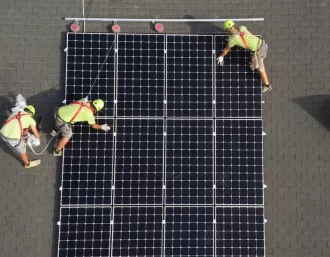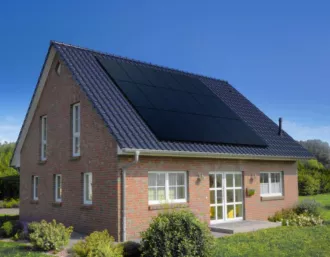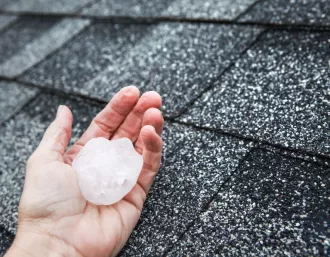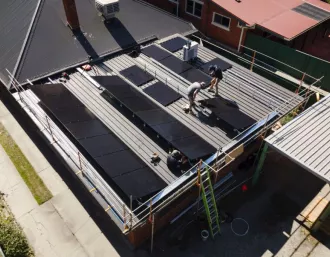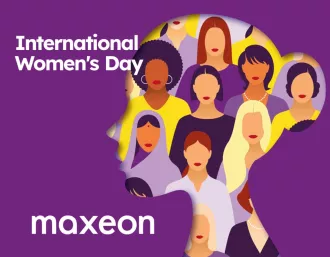Solar-Powered Clean Water for Indigenous Communities in Mexico

Water is basic to survival, yet lack of access to safe water continues to plague many parts of the world. Climate change threatens to exacerbate a water situation that has already gone from bad to worse, with drought now known to cause more deaths and displace more people than any other natural disaster. Globally, the area affected by drought is increasing every year.1 2019 IPCC Special Report on Climate Change and Land. By 2025, it is predicted that about 1.8 billion people will experience absolute water scarcity, and 2/3 of the world will be living under water-stressed conditions.2 United Nations Convention to Combat Desertification
In the Yucatan peninsula of Mexico, indigenous Mayan villages already face constant water scarcity, as unprecedented droughts and recent hurricanes take their toll on the area. The Calakmul Biosphere Reserve is a UNESCO World Heritage site due to its natural biodiversity and ancient Mayan archeological sites. Calakmul is part of Mexico's largest rainforest and home to several indigenous villages as well as some of the region's most diverse plant and animal life, some in danger of extinction.
But since 2000, Calakmul has suffered from constant drought, drastically reducing potable water sources. To make matters worse, a recent intense hurricane season caused extensive flooding across the region's indigenous villages and contaminated rainwater reserves. Without access to clean water, children began to get rashes and diarrhea, and adults reported unquenchable thirst and stomach aches.
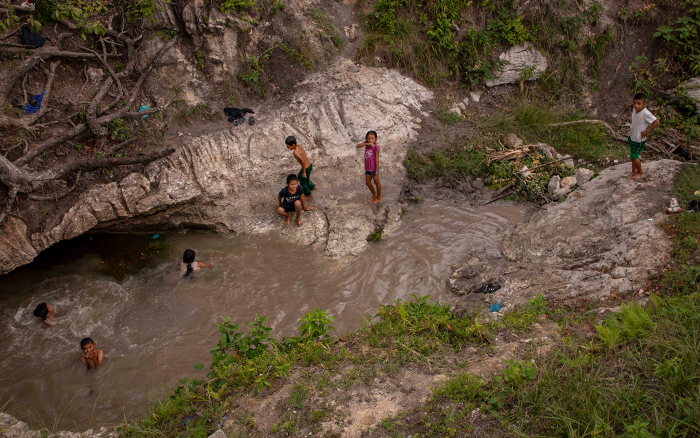
Children play in the nearby Santa Rosa River, which is too polluted for use in drinking water.
A solution was desperately needed. One organization began working to address the water issue at the source – with a solar-powered water-filtration system that converts rainwater into clean, drinkable water for entire communities.
A Disaster Relief Solution Finds a Permanent Home
Infinitum Humanitarian Systems (IHS) is a Seattle-based profit-for-purpose company that has developed an advanced, portable water filtration system for disaster areas and hard-to-reach areas like Calakmul. The Water Aid and Renewable Power (WARP) system was first engineered for the Roddenberry Foundation after Super Typhoon Haiyan hit the southern Philippines in 2013. Now, this disaster-relief solution has been deployed as a permanent water system for indigenous villages in Calakmul.
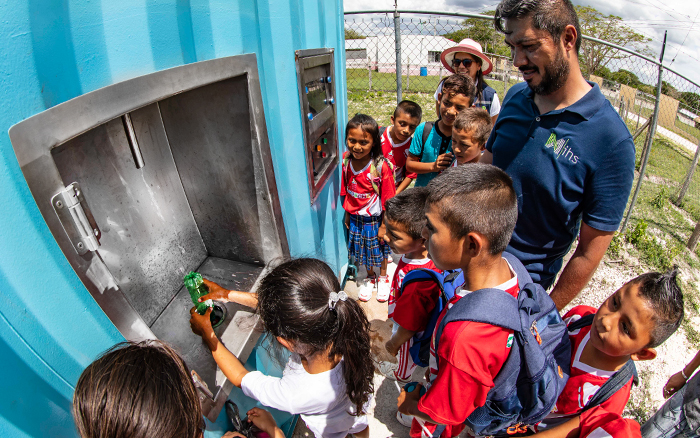
Daniel Ascencio, IHS Country Manager for Mexico, with children in Calakmul, Mexico, who now enjoy purified drinking water from a new WARP system
A Sustainable Water System, Powered by Solar
Three communities of Calakmul were selected for the WARP system: El Manantial, Manuel Castilla Brito and Ley de Fomento Agropecuario. In a collaborative effort between IHS, Mexican NGO Fondo para la Paz and the communities' water committees, with support from the W.K. Kellogg Foundation, these systems are now delivering pure, clean drinking water to more than 1,500 people in the region.
Entirely self-contained in an intermodal shipping container, each WARP system is powered by a smart solar power system designed in collaboration with BMS Mobile Power and MIT's Lincoln Labs. The system features eight 110W Maxeon solar panels, providing enough power to pump water from a nearby cistern and run the water filtration system off-grid.

Alex Hatoum (right), IHS Managing Director, and a colleague install flexible solar panels on the rooftop of a new WARP system.
The WARP2 system uses cutting-edge nanomaterials that remove the most dangerous water contaminants, such as bacteria, viruses, chemicals, pesticides and heavy metals. The system can produce 3,000 gallons of drinking water per day.
Evolutions in system design now make it possible to produce twice the volume of water as previous systems with a third of the power. Instead of relying on propane tanks to pump water, solar-powered pumps feed water from rainwater cisterns to the system. Gravity reduces the overall power consumption, and solar takes care of the rest.
Global Expertise, Local Ownership and Control
To truly address water issues long term, local communities must be able to take ownership of their own solar-powered water systems. IHS designed the WARP system as a platform that can become a small business managed and maintained by the community.
"We install the system and come back 90 days after to see how the system is doing and hand it over to the local community," Alex explains. "The goal is that the communities set up a mechanism to self-maintain it."
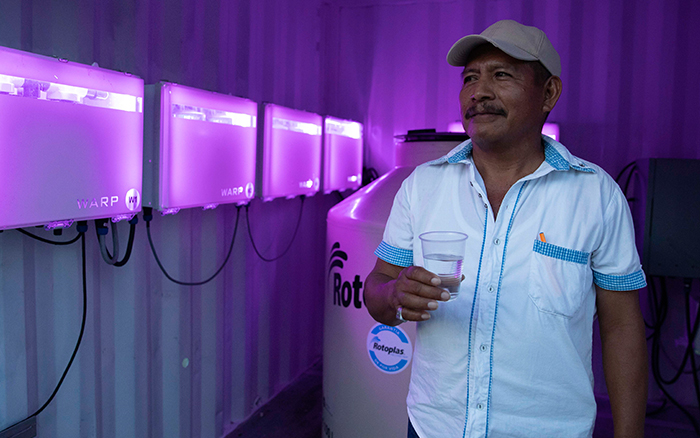
A Calakmul resident enjoys a glass of purified water.
As the rate and severity of climate events increases worldwide, it will become even more critical for communities worldwide to be empowered with solutions that address humanitarian needs at the source. The WARP system is not only a source of clean water and good health; it's a font of self-reliance.
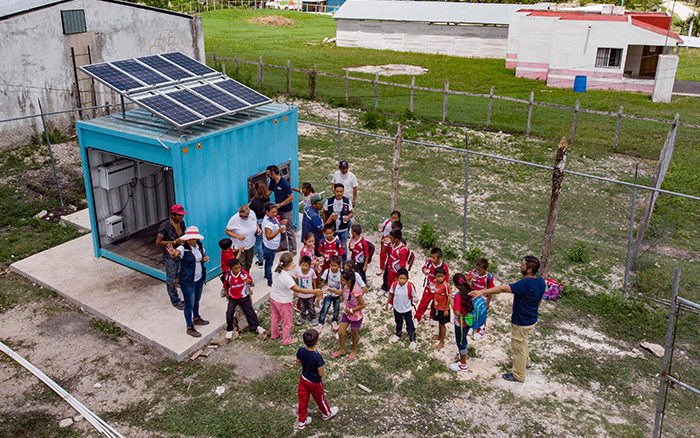
© 2021 Maxeon Solar Technologies. All Rights Reserved. MAXEON is a registered trademark of Maxeon Solar Technologies, Ltd. View maxeon.com/trademarks for more information.
